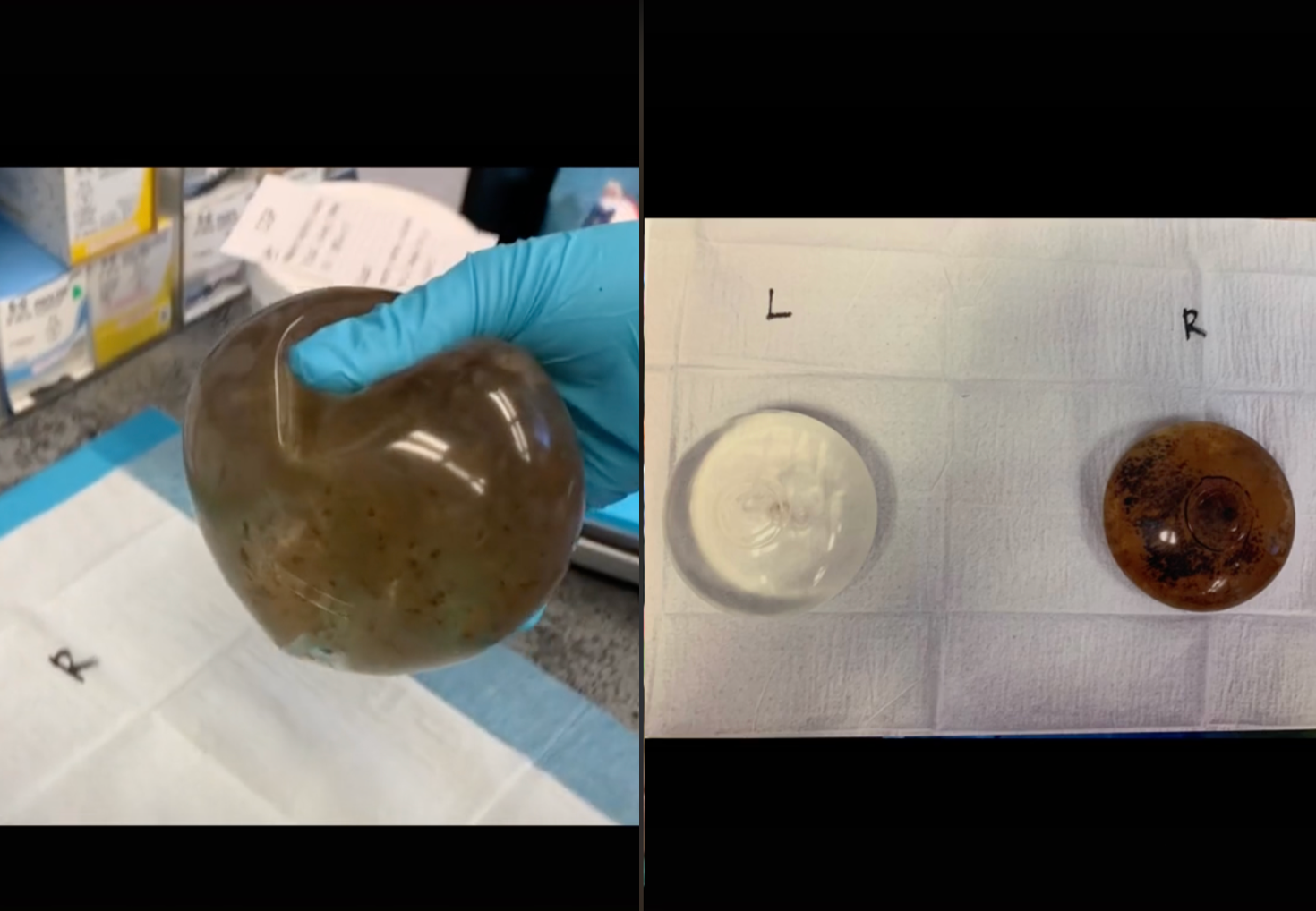
A woman has revealed that a “mouldy” breast implant caused her to develop symptoms of Hashimoto’s disease, an autoimmune disorder.
In a video posted to TikTok last month, Melissa Lima, @melissalima713, explained that she got breast implants in 2002 “because being in front of the camera made [her] insecure about [her] body”.
She went on to describe how eight years later, she began to develop severe pain in her body and didn’t know what the cause of it was, despite seeing “hundreds of doctors”.
“In 2010, I started becoming sick with severe joint pain, depression, and unexplained inflammation,” Lima wrote in the text over the video, as she showed photos and clips of her swollen face. “After [hundreds] of doctors and still no answer, I just gave up.”
Lima then detailed how her physical pain impacted her daily life, adding: “As a single mom, I couldn’t get out of bed to cook for my boys and would often would if they would be better off [without] me.”
After the clip showed photos of Lima’s leg turning red and her feet swelling, she said she had a change in perspective when a good friend encouraged her to research breast implant illness.
Through her research, Lima said that “in October 2020, I made a decision that literally changed my life”, as she decided to get her breast implants taken out.
She also shared a video of a hand holding the right breast implant that was filled “mould”, along with a side-by-side photo of the two saline implants, as her left one was still clear and had no mould in it.
Lima then detailed how her body changed after removing the implants, explaining: “My face and eyes literally changed within hours. I finally felt like me again!”
After acknowledging how she’s now living her “best life,” she also noted how grateful she was that her sons had “their mom back”.

During an interview with BuzzFeed about the experience, Lima described some of her initial symptoms in 2010, including brain fog, fatigue, and intestinal issues. She noted that after her doctors performed multiple blood tests, she discovered that her symptoms were from having Hashimoto’s disease, “an autoimmune disorder affecting the thyroid gland,” per Mayo Clinic.
She emphasised that after doing her breast implant illness research, she knew that she wanted to get the implants removed, even though she wasn’t positive that this would alleviate her symptoms.
“I didn’t know if removing them was going to ‘cure’ my problems. However, I was so sick, I decided I was going to get them taken out either way,” she explained.
Lima noted that once the implant was removed, her doctor was shocked and told her that he’d “never seen” mould inside of an implant before. She also acknowledged how she’s “back to [her] normal self,” as it’s been two years since she got the surgery.
“I still have to take medication for Hashimoto’s and I have joint pain in my hips,” she added. “Other than that, I’m happy, healthy, and more importantly, extremely lucky to be able to get back to my normal self.”
In the comments of her TikTok video, which has more than 5.3 million views, multiple TikTok users praised Lima for being so candid about breast implant illness and shared how they’ve considered removing their implants as well.
“I’m soooo glad you shared your story when you did! Made me think twice and now I will never get mine done! So glad you’re doing so much better!” one wrote.
“So crazy!” another added. “I have been thinking about taking mine out, wondering if they are the cause of some issues. Mine are silicone though.”
A third person wrote: “Got mine out 3 years ago. No more BII since I did. It’s much worse than women still know or understand.”
According to the Mayo Clinic, the “exact relationship” between breast implants and breast implant illness is “not clearly understood”. However, reported symptoms “include fatigue, memory loss, skin rash, and trouble concentrating,” with the removal of the breast implants as a possible way to “reverse [these] symptoms”.
As noted by the Food and Drug Administration (FDA), there are a wide range of risks associated with breast implants, including breast pain, infection, or rupture of the implants.
In addition, the FDA has discovered a possible association between breast implants and anaplastic large cell lymphoma (ALCL), which is called Breast Implant Associated Lymphoma (BIA-ALCL). The federal agency also notes that this condition “is not breast cancer” as “it is a type of non-Hodgkin’s lymphoma (cancer of the immune system)”.
The Independent has contacted Lima for comment.







